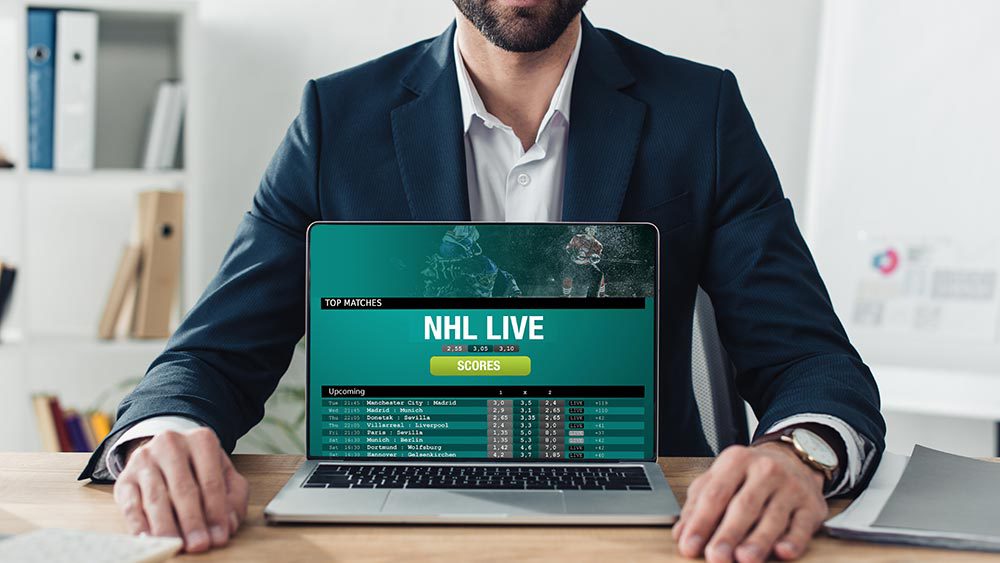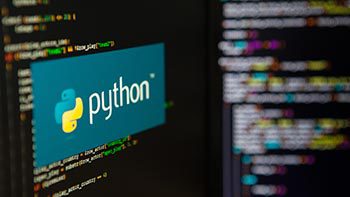
Are you interested in becoming an NHL analyst? There are two types of pro hockey analysts: data analysts, who forecast smart strategy, and broadcasting professionals, who provide on-air commentary during games. If you’re interested in pursuing either one of these exciting hockey jobs, we’ve highlighted how to find – and land – the perfect career for you.
How to Become an NHL Data Analyst
If you want to become an NHL data analyst, here are six steps you can take toward that dream career:
1. Learn to code
California-based data scientist Alex Novet advised on Hockey Graphs that aspiring hockey data analysts should learn Python or R. These languages are very popular for public sports analytics work because they allow you to develop and assess research that you can reproduce.

Novet stated that it is not all that important which of the two languages you use, saying that the vast majority of projects can be completed with either. That said, here are what he says are the benefits of each:
Per his analysis, Python is…
- stronger at maintaining an auto-updating live database or otherwise transitioning projects into ongoing production; and
- preferable for data scraping and other functions that involve the internet.
Meanwhile, R is…
- more accessible – with intuitive data analysis libraries, particularly tidyverse – to individuals who are learning their first coding language;
- better for running extremely advanced statistical models; and
- ideal for basic dataset exploration, such as short statistical summaries.
Related Jobs
- Graduate Assistant, Fitness Center/Game Management - Volunteer Coach, Field Hockey
Collegiate Sports Administration - Northeast Region
2. Study statistics
Hockey analysts working with data must not just know coding but statistics. After all, you will be using statistical models to make data-backed predictions. Start focusing on the numbers and remember as many details as possible, including win-loss records, player statistics, and final scores.
3. Get additional training and develop your skills
You will have a much higher likelihood of success if you get a bachelor’s degree in computer science. You want to sharpen your skills in analytics, reporting, and analytics design and management.
Suppose you want to go another direction or do not yet have analytics experience specific to sports. In that case, you can take a hockey analytics course from Sports Management Worldwide or a similar training organization.
4. Be careful on social media

Be respectful of other analysts, front offices, players, and reporters on social media. Fan’s Guide to Hockey Analytics author Robert Vollman notes that he has seen numerous people lose opportunities because of social media behavior. Generally, avoid talking about controversial topics such as politics, religion, sex, and money.
5. Prepare yourself financially
One other insight from Vollman is that you should not expect great pay upfront. Be careful about accruing debt and set your money aside to handle a potential move to a job location or cost of living in the applicable city.
6. Network
These NHL analyst jobs, like the below ones, will likely require networking. See the conclusion for a step you can take in that direction.
Related Jobs
- Graduate Assistant, Fitness Center/Game Management - Volunteer Coach, Field Hockey
Collegiate Sports Administration - Northeast Region
How to Become an NHL Analyst for Radio or a TV Network
If you want to become an NHL analyst for a radio or TV network, you will need to take three similar steps:
1. Go to school
Communications and broadcasting are great majors for a bachelor’s degree. Once you earn that degree, you can decide if a master’s degree would make sense as well. You can get experience announcing games, whether hockey or otherwise, through your college’s TV or radio station. You can also work for the sports information department, potentially as a volunteer.
2. Get experience & look into internships
See if your local TV station offers internships. Through an internship, you can work directly for TV and radio professionals, giving you hands-on experience.
To get that initial internship and start developing your career, you need to meet people in news organizations. Networking is critical. (See the conclusion below.)
3. Build your demo reel
These hockey jobs are incredibly competitive. Aspiring NHL analysts should be prepared to demonstrate what they can do. It will be easiest to create a demo reel during college. You can then showcase yourself to employers as you are preparing to graduate.
Related Jobs
- Community Marketing Manager
Administration/Management - West Region
Connecting With NHL Analysts & Other Hockey Pros
Whether you want to become an NHL network analyst or a data analyst, the above information should help. One of the most important topics we covered is networking. So why not get started today? Join our network and start connecting with industry professionals and find the sports job you’ve always wanted.





